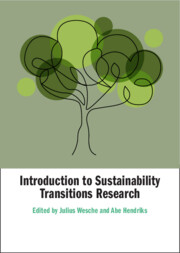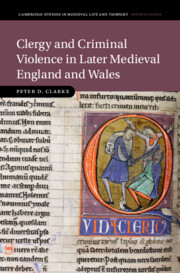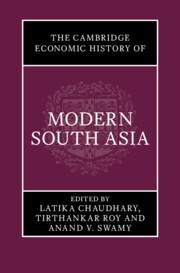Refine search
Actions for selected content:
3412568 results

Introduction to Sustainability Transitions Research
- Coming soon
-
- Expected online publication date:
- February 2026
- Print publication:
- 28 February 2026
-
- Book
- Export citation

Shared Morals
- The Role of Moral Rhetoric in Party Politics
- Coming soon
-
- Expected online publication date:
- February 2026
- Print publication:
- 31 December 2025
-
- Book
- Export citation

Ethnic Stereotypes and the Letters of Paul
- History and Reception
- Coming soon
-
- Expected online publication date:
- February 2026
- Print publication:
- 28 February 2026
-
- Book
- Export citation

Bandit Convex Optimisation
- Coming soon
-
- Expected online publication date:
- February 2026
- Print publication:
- 28 February 2026
-
- Book
- Export citation

Clergy and Criminal Violence in Later Medieval England and Wales
- Coming soon
-
- Expected online publication date:
- February 2026
- Print publication:
- 28 February 2026
-
- Book
- Export citation
Empirical Legal Studies in EU Law
- Coming soon
-
- Expected online publication date:
- February 2026
- Print publication:
- 28 February 2026
-
- Book
- Export citation

Climate Politics
- Can't Live with It, Can't Mitigate without It
- Coming soon
-
- Expected online publication date:
- February 2026
- Print publication:
- 31 January 2026
-
- Book
- Export citation

Order, Authority, Nation
- Neo-Socialism, Fascism, and Political Conversion in Interwar France
- Coming soon
-
- Expected online publication date:
- February 2026
- Print publication:
- 28 February 2026
-
- Book
- Export citation

Ordinary Chondrites
- The Most Common Meteorites
- Coming soon
-
- Expected online publication date:
- February 2026
- Print publication:
- 31 March 2026
-
- Book
- Export citation

Religion in Irish Literature and Culture
- Coming soon
-
- Expected online publication date:
- February 2026
- Print publication:
- 28 February 2026
-
- Book
- Export citation

The Italian; or, The Confessional of the Black Penitents
- Coming soon
-
- Expected online publication date:
- February 2026
- Print publication:
- 28 February 2026
-
- Book
- Export citation

Law for the Land
- The Public Trust Doctrine, Mono Lake, and a Quiet Revolution in Environmental Rights
- Coming soon
-
- Expected online publication date:
- February 2026
- Print publication:
- 28 February 2026
-
- Book
- Export citation

The Cambridge Economic History of Modern South Asia
- Coming soon
-
- Expected online publication date:
- February 2026
- Print publication:
- 28 February 2026
-
- Book
- Export citation
Mental Illness Stigma and the Moral and Social Community
- Coming soon
-
- Expected online publication date:
- February 2026
- Print publication:
- 28 February 2026
-
- Book
- Export citation

Terror on Trial
- An Ethnography of French Courts
- Coming soon
-
- Expected online publication date:
- February 2026
- Print publication:
- 28 February 2026
-
- Book
- Export citation

Art, Nature, and the Body in Early Medieval Britain and Ireland
- Coming soon
-
- Expected online publication date:
- February 2026
- Print publication:
- 31 March 2026
-
- Book
- Export citation
Byzantine Law
- The Law of the Eastern Roman Empire
- Coming soon
-
- Expected online publication date:
- February 2026
- Print publication:
- 28 February 2026
-
- Element
- Export citation

Strategic Compensation and Talent Management
- Lessons for Managers
- Coming soon
-
- Expected online publication date:
- February 2026
- Print publication:
- 28 February 2026
-
- Textbook
- Export citation

German as a Heritage Language
- Contact, Variation and Maintenance
- Coming soon
-
- Expected online publication date:
- February 2026
- Print publication:
- 31 January 2026
-
- Book
- Export citation

Making Sense of Mass Education
- Coming soon
-
- Expected online publication date:
- February 2026
- Print publication:
- 28 February 2026
-
- Textbook
- Export citation
